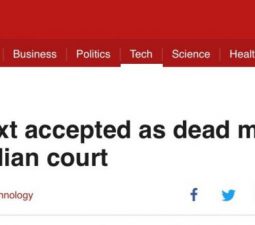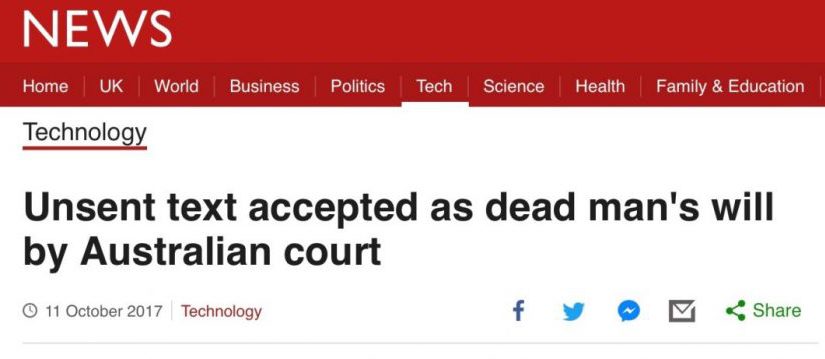Commentary
News, analysis, comment and updates from ICLR's case law and UK legislation platform
In this guest post, Barbara Rich explains how the Daily Mail missed an opportunity to explain the essential rights of a cohabitant to ask the court to make reasonable provision for her under the Inheritance (Provision for Family and Dependants) Act 1975, rather than describing the case as a judge simply overturning the deceased’s wishes… Continue reading about Inheritance disputes and the media: making wishes come untrue
As the Home Office gets involved in the government’s plans to tackle domestic abuse, David Burrows considers the terms of the current consultation and looks back over the somewhat uneven history of dealing with the problem since the 1970s. Transforming society’s response to domestic abuse A domestic abuse Bill may finally be in prospect. A… Continue reading about Domestic abuse: a Government consultation and a short history
David Burrows considers an old scandal and an even older statute in the context of a persisting impediment on the ability of the press to print lurid accounts of the private lives of those involved in defended divorce disputes. A modern protection for public morals A flurry of tweets and blog traffic earlier this month… Continue reading about Family law: ‘Injury to public morals’ – 2018 style
David Burrows considers practitioner issues arising in a recent case in which a husband applied for an injunction to prevent a firm of solicitors, with whom he had previously had a preliminary consultation, from acting for his wife in divorce proceedings between them, and ponders an unexplained reference to ‘skull painting’… The ‘blasé’ evidence… Continue reading about Solicitor’s retainer and professional privilege after S v S
In this guest post, Tor Butler-Cole explains how judges have approached end of life decisions in recent cases in the Court of Protection. Although aimed primarily at a medical readership, it provides a useful introduction for anyone unfamiliar with this type of case. Prompted by interesting discussions with doctors on Twitter, and because it isn’t… Continue reading about How Court of Protection judges decide best interests in end of life cases
By David Burrows Consent: mental capacity and understanding What does ‘consent’ mean when applied to such situations as living apart for two years and consenting to a divorce; consent of a birth parent to adoption; or consent to the terms of a pre-nuptial agreement or settlement of matrimonial financial negotiations? This article looks at two… Continue reading about Family law: capacity to consent
A judge sitting in the High Court has taken judicial activism to new levels by effectively laying down the law on flirting at work. Or so you might think, after reading a report of one of his judgments in The Times. [Spoiler: he has done no such thing.] In an article entitled “High Court judge… Continue reading about Flirting with judicial activism? Case comment on David v Hosany
David Burrows questions the idea that politicians can grant a “right to justice”, as opposed to providing the means of access (such as legal aid) or removing the obstacles (such as excessive court fees) to a right we already have. The Right to Justice (Fabian Policy Report, September 2017 ) (the Report) produced… Continue reading about ‘The Right to Justice’: political slogan or something more sinister?
In this guest post Barbara Rich discusses the judgment of the English High Court on the disposal of the body and funeral ceremony of Ian Stewart-Brady in Oldham Metropolitan Borough Council v Robin Makin [2017] EWHC 2543 (Ch); [2017] WLR(D) 670 Reginald (“Reggie”) Kray, the survivor of the notorious twin brother criminals who flourished… Continue reading about The obsequies of monsters: case comment on Oldham Metropolitan BC v Makin
Guest post by Barbara Rich On 11 October 2017, this headline appeared on the BBC news website. The story naturally aroused a lot of interest and discussion. The traditional need for formality (two witnesses present at the same time to witness the signature of the person making the will) in creating a valid will is… Continue reading about Case comment: Re Nichol – an unsent text message as a valid will




















